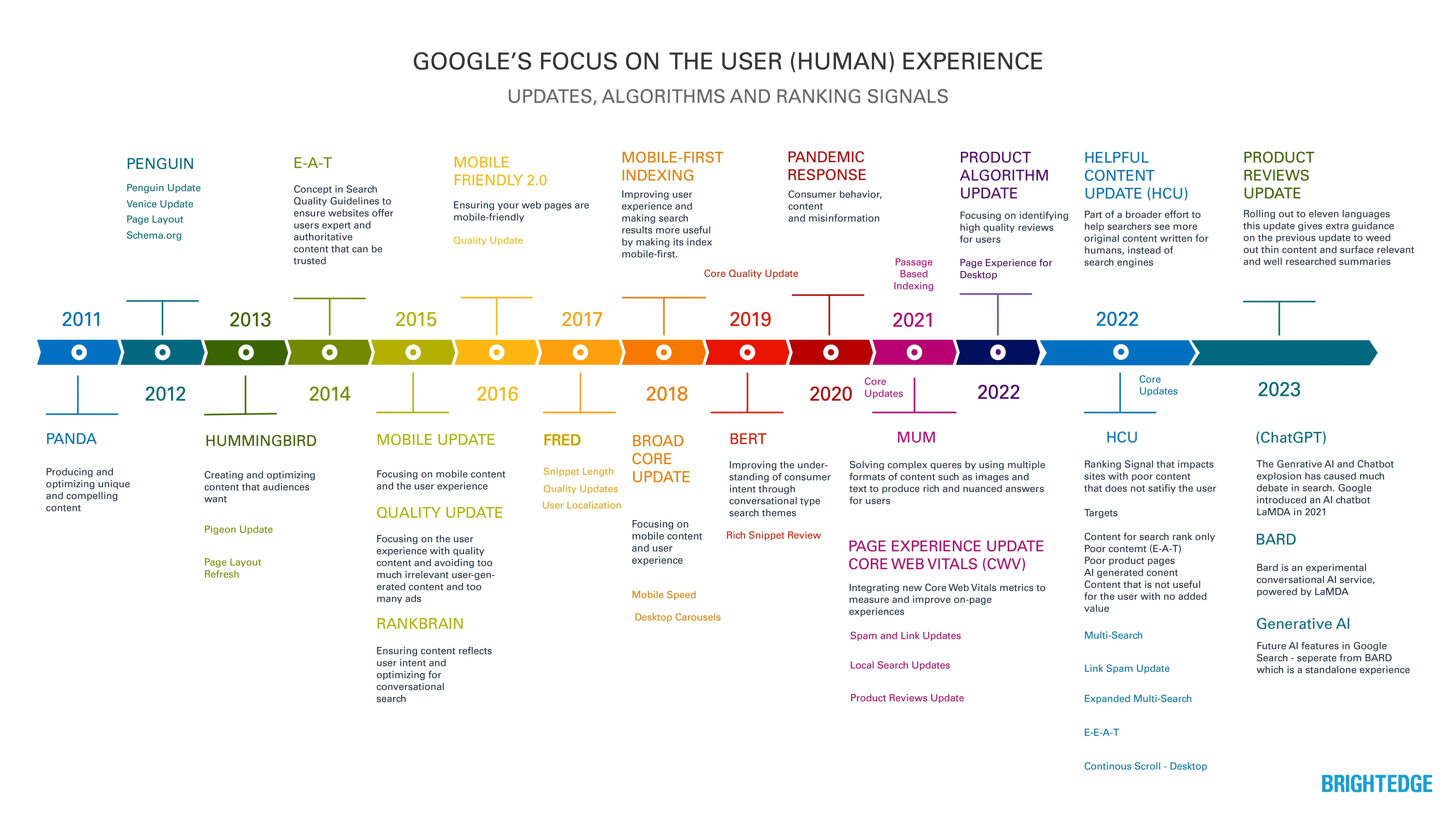When building your credibility as a site, you might find yourself falling into certain errors common to site optimization. Make sure to watch out for these SEO red flags as you move forward.
Search Engine Optimization (SEO) remains a vital cog in the machinery of digital marketing success. A robust SEO strategy can catapult a business to the forefront of its industry, driving organic traffic and potential leads and customers.
Yet, as crucial as the right practices are in SEO, it’s the missteps—often made inadvertently—that can send a business spiraling into digital obscurity.
Making an SEO error is not just about lost ranking opportunities; it can erode trust, reduce visibility, and, in worst-case scenarios, result in penalties that can sideline a website from search results altogether. Given the stakes, it’s imperative for businesses to be aware of common SEO mistakes to avoid.
1. Keyword Stuffing
Once upon a time, in the early days of SEO, keyword stuffing was a common tactic to try and game the system. Webmasters would cram as many keywords as possible into their content, often at the expense of readability and user experience.
The logic was simple: the more a particular keyword appeared, the more relevant search engines would deem the page to be. Fast forward to today, and this tactic is not only outdated but actively harmful. Search engines like Google have become incredibly sophisticated. Their algorithms now prioritize user experience, relevance, and quality of content.

When content is overloaded with keywords, especially in a way that feels forced or unnatural, search engines recognize this as an attempt to manipulate rankings. Such content can be penalized, resulting in lower rankings or even removal from search results entirely.
We detect policy-violating content and behaviors both through automated systems and, as needed, human review that can result in a manual action. Sites that violate our policies may rank lower in results or not appear in results at all.
Google Spam Policies
Beyond the technical repercussions of search engines, there’s also the user perspective to consider. Keyword-stuffed content tends to be jarring and unhelpful for readers.
When users land on a page expecting valuable information but are instead met with a barrage of repetitious keywords, their trust in the brand diminishes. This can lead to higher bounce rates, reduced engagement, and a tarnished reputation.
2. Writing for machines and not people
In the quest to achieve high search engine rankings, it can be tempting for businesses to write content tailored primarily for search engine algorithms, forgetting the most crucial audience: human beings. This oversight, while seemingly innocuous, can significantly detract from the genuine purpose of content and alienate potential customers. Modern SEO is not just about appeasing search engine bots. It’s about delivering valuable, relevant, and engaging content to actual people.
Google’s automated ranking systems are designed to present helpful, reliable information that’s primarily created to benefit people, not to gain search engine rankings, in the top Search results.
Google
When content is written solely with algorithms in mind, it often lacks the depth, nuance, and emotional connection that resonates with readers. Such content might rank well initially, but if users find it unengaging or unhelpful, they won’t stay, won’t convert, and certainly won’t come back.
Moreover, search engines have become adept at understanding and prioritizing user experience. Factors like dwell time (how long a user stays on a page), bounce rate (how quickly they leave), and social shares can all influence a page’s ranking.
If users are consistently bouncing from your content because the tone of voice is robotic or lacks genuine value, it sends a clear signal to search engines that the content might not be of high quality.
3. Being afraid of long-tail keywords
In the vast ocean of SEO, many businesses fixate on ranking for broad, high-volume keywords, often overlooking the potential goldmine of long-tailed keywords.
These are longer, more specific keyword phrases that visitors are more likely to use when they’re closer to making a purchase or when they’re using voice search. Dismissing the value of these longer queries can be a significant oversight for several reasons.
Firstly, long-tailed keywords tend to have lower competition compared to their shorter counterparts. This means that, while they might attract fewer searches, the likelihood of ranking higher for these terms—and quicker—is significantly greater.
For smaller businesses or those just venturing into SEO, this presents a golden opportunity to gain visibility without battling the search-engine-optimized giants in their industry.
Secondly, long-tailed keywords often signal a deeper level of user intent. Consider the difference between a user searching for “shoes” versus “black leather Chelsea boots size 10.” The latter search is far more specific, suggesting the user has a clear idea of what they want and maybe closer to making a purchase.
By targeting such specific terms, businesses can attract traffic that has a higher potential for conversion.
4. Forgetting about quality backlinks
One cannot underestimate the power and influence of high-quality backlinks. Neglecting to cultivate a robust backlink profile is akin to building a spectacular storefront but forgetting to put up any signposts directing people to it.
Backlinks, essentially, are links from other websites pointing to your site. They’ve long been regarded by search engines as votes of confidence or endorsements of a site’s credibility and authority. When high-quality, reputable websites link to your content, search engines interpret this as a sign that your content is valuable and trustworthy.
Neglecting the power of quality backlinks or resorting to black-hat tactics like purchasing links can be detrimental to your SEO efforts. Instead, focusing on creating high-quality, shareable content, establishing relationships with industry influencers, and actively engaging in legitimate link-building strategies can fortify your online presence and bolster your search engine rankings.
5. Expecting instant results
One of the most common misconceptions surrounding SEO is the expectation of rapid results.
While we live in an age of instant gratification, SEO is a marathon, not a sprint. It’s a long-term investment that requires patience, perseverance, and a deep understanding that results take time to materialize.
Businesses that enter the SEO arena expecting quick wins might find themselves disillusioned and could make impulsive decisions, potentially harming their efforts.
It’s essential to set realistic expectations and understand that SEO is a continual journey of adapting, learning, and growing. The fruits of this labor, while they might take time to manifest, can lead to sustained online visibility, increased organic traffic, and a strong digital foundation for years to come.
Related Content:
- What You Need to Know About Optimizing Your SaaS Website
- 7 AI SEO Tools to Help You Optimize Your Website’s Content
- SEO Tips from A Digital Marketing Expert
M2.0 Communications is a digital agency that offers a variety of digital marketing services including SEO, social media management, and content development to drive your business forward and boost brand awareness among your target audience. Visit our case studies page to learn more about the brands we collaborate with.



